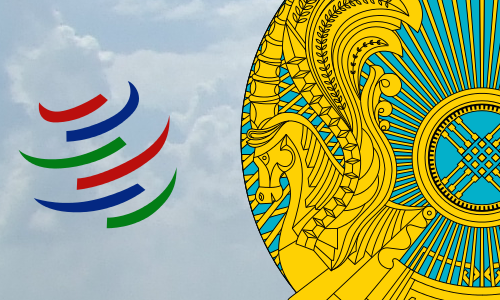Bishkek and Tashkent Face Uneasy Relations
By Arslan Sabyrbekov (06/24/2015 issue of the CACI Analyst)
On June 10, Kyrgyzstan marked the fifth anniversary of the tragic inter-ethnic violence that claimed more than 400 lives, displaced tens of thousands of people and destroyed thousands of households. In the aftermath of the bloody events, the President of neighboring Uzbekistan, Islam Karimov, issued a statement that third forces provoked the clashes between Kyrgyz and Uzbeks, and the Kyrgyz leadership agreed. However, recent developments indicate that Karimov’s position vis-à-vis the authorities in Bishkek and the conflict has changed into a more confrontational stance.
Karimov’s changing mood became apparent after his remarks to his Kyrgyz counterpart at the informal summit of the CIS states held in Moscow on May 8, in connection with the celebration of the 70th anniversary of the victory against Nazi Germany. At the summit, Kyrgyzstan’s President Almazbek Atambayev stated that, “It is of course sad that not everybody could make it to this summit because, to some extent, it is a tribute and respect for fathers and grandfathers, mothers and grandmothers who were in the war. I think that this day should remain in the memory of all countries because the future will punish those who forget the past.”
In response to this statement, the Uzbek President said that every democratically elected leader is in a position to decide what to celebrate and where, and no one has the right to force his opinion on others. Karimov continued by referring to his Kyrgyz colleague as simply “Almaz” and described his statements as incorrect and tactless. Atambayev interfered, stating that he was simply expressing his opinion, but Karimov ironically interrupted him by saying, “We all know your opinion already.”
Nevertheless, during his bilateral talks with the United Nations’ Secretary General Ban Ki-moon, Karimov described the June 2010 events in southern Kyrgyzstan as a full-scale war. “Power holders in Kyrgyzstan did not draw any conclusions. The causes of the conflict need to be investigated at an international level,” Karimov noted, despite the fact that the inter-ethnic clashes were investigated by a national as well as an international commission led by the Organization for Security and Cooperation in Europe. This is in stark contrast to the Andijan massacre of 2005, which were never evaluated either by national or international commissions.
Yet Karimov touched on a weak spot by pointing to Kyrgyzstan’s failure to bring the perpetrators to justice. Well-respected international human rights organizations have also called on the Kyrgyz authorities to retry all those convicted following the June 2010 inter-ethnic clashes, a trial that according to them saw ethnic Uzbeks sentenced at a higher proportion that then their Kyrgyz counterparts. Such a retrial would involve the case of the human rights defender and ethnic Uzbek Azimjan Askarov, sentenced to life for organizing mass disturbances and instigating inter-ethnic violence in southern Kyrgyzstan in 2010. According to Rachel Denber of Human Rights Watch, “In the case of Azimjan Askarov, the Kyrgyz justice system has utterly failed to deliver justice. The case was riddled with blatant flaws from start to finish, and it is astounding that the court did not order a thorough investigation into the way it was conducted.”
In general, Bishkek-Tashkent relations have always been uneasy. The two countries have been divided not only over the ethnic clashes between Uzbeks and Kyrgyz in southern Kyrgyzstan, but also on numerous border conflicts and the constant struggle for water resources. According to local political analysts, Karimov’s increasingly critical statements addressed to Bishkek might be guided by geopolitical interests. In a number of interviews, Uzbekistan’s president has stated that Tashkent will not enter the Eurasian Economic Union, the Customs Union or any other alliance that is reminiscent of the Soviet Union, unlike Bishkek, which is pursuing the opposite foreign policy.
Also, earlier this year Kyrgyzstan approved the sale of its gas network to Russia’s Gazprom for the symbolic price of US$ 1 and is now receiving its energy supplies without any delay. This has removed Tashkent’s leverage, which it has previously deployed to bully Bishkek by cutting off supplies during winter. Such developments, along with Bishkek re-equipping its military with the Kremlin’s assistance might are indeed irritants to power holders in Tashkent.
Tajikistan's Islamic Resistance Party Struggles to Survive
By Oleg Salimov (06/24/2015 issue of the CACI Analyst)
The leader of the Islamic Renaissance Party of Tajikistan (IRPT) Mukhiddin Kabiri gave an extensive press conference during the conference “Central Asia – Current Challenges” in Moscow, organized by Russian and Tajik educational and policy research institutions. In particular, Kabiri emphasized the growing confrontation between IRPT and Tajikistan’s government headed by Emomali Rakhmon. Kabiri, currently living in Turkey in self-imposed exile after his party was ousted from parliament in March 2015 elections, spoke about his fear of returning to Tajikistan due to political persecution. Official Dushanbe has yet to comment on Kabiri’s allegations.
Prior to March 2015, IRPT was the largest opposition party in the Tajik parliament, counting up to 40,000 active members. IRPT is a formal successor to the United Tajik Opposition (UTO), which it dominated during the Tajik Civil War. IRPT controlled the opposition’s armed forces and coordinated UTO’s efforts during the peace negotiations in 1994-97. IRPT is the only officially registered Islamic party in the former Soviet Central Asia, whose status became possible due to the peace accords signed by the UTO’s previous leader Said Abdullo Nuri and Tajikistan’s president Rakhmon in 1997.
IRPT has previously accused the Tajik government of violating the provisions of the peace accords in 1998, 1999, and 2000. Initially, according to the peace accords, the opposition received 30 percent of the seats in government. Consistent persecution and manipulations allowed Rakhmon to entirely expel the opposition from government. In 2003, IRPT protested new amendments to the constitution, which allowed another reelection of Rakhmon. In 2005, IRPT denounced the parliamentary elections as rigged. In the 2010 elections, IRPT gained 8.2 percent of the votes. IRPT rejected the results of the last parliamentary elections when it gained only 1.6 percent of the votes. At the same time, the party emphasized the peaceful character of their protest and condemned possible outbursts of violence by its supporters.
The harassment of IRPT progressed considerably greatly after the 2010 elections. In the wake of attacks by Islamists in Tajikistan’s Rasht region in fall 2010, the government initiated a series of actions aimed to intimidate IRPT. Thus, the IRPT’s headquarters in Dushanbe were searched and documents and computers seized. Soon thereafter, the IRPT’s all-women mosque was set on fire. In early 2011, official Tajik media started an attack against IRPT, intended to demonize the party and its leadership.
These tactics continued up until the 2015 elections. Human rights groups reported several arrests of IRPT activists at the end of 2013. The leader of the IRPT cell in Badakhshan, Saodatsho Adolatov, received a five-year prison term in January 2014. Also, a series of discrediting reports and videos on immoral behavior of IRPT’s regional leaders was published in the media and social networks. IRPT denounced these reports and videos as false. In August 2014, the government newspaper Jumkhuriat published an extensive article comparing IRPT to the Muslim Brotherhood and Hamas. Most recently, IRPT reported the arrest of Kurbon Mannonov, the leader of the IRPT cell in Nurek on June 10, 2015.
After losing last parliamentary elections, some members of IRPT and Islamic clergy called for a dissolution of the party, which they believe has become ineffective and has discredited itself. The call was widely publicized by official Tajik media. The same media depicted Kabiri and his family’s departure to Turkey as an escape from Tajikistan, which only intensified speculations on the IRPT’s termination. During his press conference, Kabiri stated that he is not planning to return to Tajikistan due to the criminal investigation opened against him. Kabiri considers the investigation a pretext of the Tajik government to cover up political persecution against IRPT and himself.
Kabiri characterized his party’s future in Tajikistan as uncertain due to intensified persecution. Kabiri announced that IRPT has submitted an open letter to Rakhmon, describing the discrimination and harassment of IRPT’s leadership and members, following up on a 189-page appeal to Tajik parliament and law enforcement. IRPT calls on Rakhmon to observe the conditions listed in the peace accords of 1997. It should be noted that soon after the elections, the Tajik Islamic extremist group Jamoat Ansarulloh posted an online death threat to Kabiri for cooperating with Rakhmon. Andrei Serenko, an expert at the Russian Research Center of Contemporary Afghanistan, suspects that the threat was staged not by extremists but by Tajik security services to explain the future assassination of Kabiri.
The post-Civil War reconciliation provided Tajikistan with a unique opportunity to become the most progressive new state among the Central Asian republics by recognizing and allowing the only Islamic party to take part in the state building processes. However, the intimidation and suppression of IRPT and its leadership exhibits a devaluation of democratic principles and advancement of authoritarianism in Tajikistan. Also, the persecution of moderate Islam, as represented by IRPT, can provoke the growth of extremism and radicalism among its followers.
Kazakhstan Completes WTO Negotiations
By Nurzhan Zhambekov (06/24/2015 issue of the CACI Analyst)
Kazakhstan completed its accession negotiations with the World Trade Organization (WTO) on June 10 and will join the WTO later in 2015. This is a milestone in Kazakhstan’s economic development. The WTO’s member states voted in favor of Kazakhstan’s accession at a meeting in Geneva on June 22, 2015. Whereas the economic impact is currently difficult to assess, the reduction in trade tariffs should in theory improve the competitiveness of Kazakhstan’s economy, leading to higher economic growth. In practice, Kazakhstan’s experience within the Eurasian Economic Union (EEU) has not been positive, as Kazakh producers have struggled to compete with larger Russian companies. Kazakh consumers are likely to benefit from Kazakhstan’s upcoming membership in the WTO, while Kazakh producers will face increasing international competition.

CACI Analyst, June 24, 2015
Contents
Analytical Articles
EXISTING PARADIGMS FOR RESISTANCE IN THE NORTH CAUCASUS CHALLENGED BY KADYROV, ISIS, by Kevin Daniel Leahy
FOOTBALL NATIONALISM AMONG IRAN’S AZERIS, by Emil Souleimanov
KAZAKHSTAN COMPLETES WTO ACCESSION NEGOTIATIONS, by Nurzhan Zhambekov
AZERBAIJAN AND THE EU, by Natalia Konarzewska
Field Reports
RUSSIA ENHANCES ITS SOFT POWER IN GEORGIA THROUGH LOCAL NGOs, by Eka Janashia
BISHKEK AND TASHKENT FACE UNEASY RELATIONS, by Arslan Sabyrbekov
TAJIKISTAN’S ISLAMIC RESISTANCE PARTY STRUGGLES TO SURVIVE, by Oleg Salimov
ARMENIA AND IRAN HOLD POLITICAL CONSULTATIONS, by Erik Davtyan
Russia’s Regulation of Labor Migration Set to Hurt Central Asian Economies
By Nurzhan Zhambekov (04/29/2015 issue of the CACI Analyst)
The slowing Russian economy suffered a triple shock in the form of Western economic sanctions, falling oil prices, and the plummeting Russian ruble in 2014, resulting in a negative impact on Central Asian states. In addition, tighter migration regulations in Russia, in force since early 2015, are having an effect on the flow of migration from Central Asia, particularly from Kyrgyzstan, Tajikistan, and Uzbekistan. These three countries rely heavily on remittances from their migrant workers in Russia. The drop in remittances could increase socioeconomic disaffection in parts of Central Asia that are dependent on labor migrants’ earnings.





